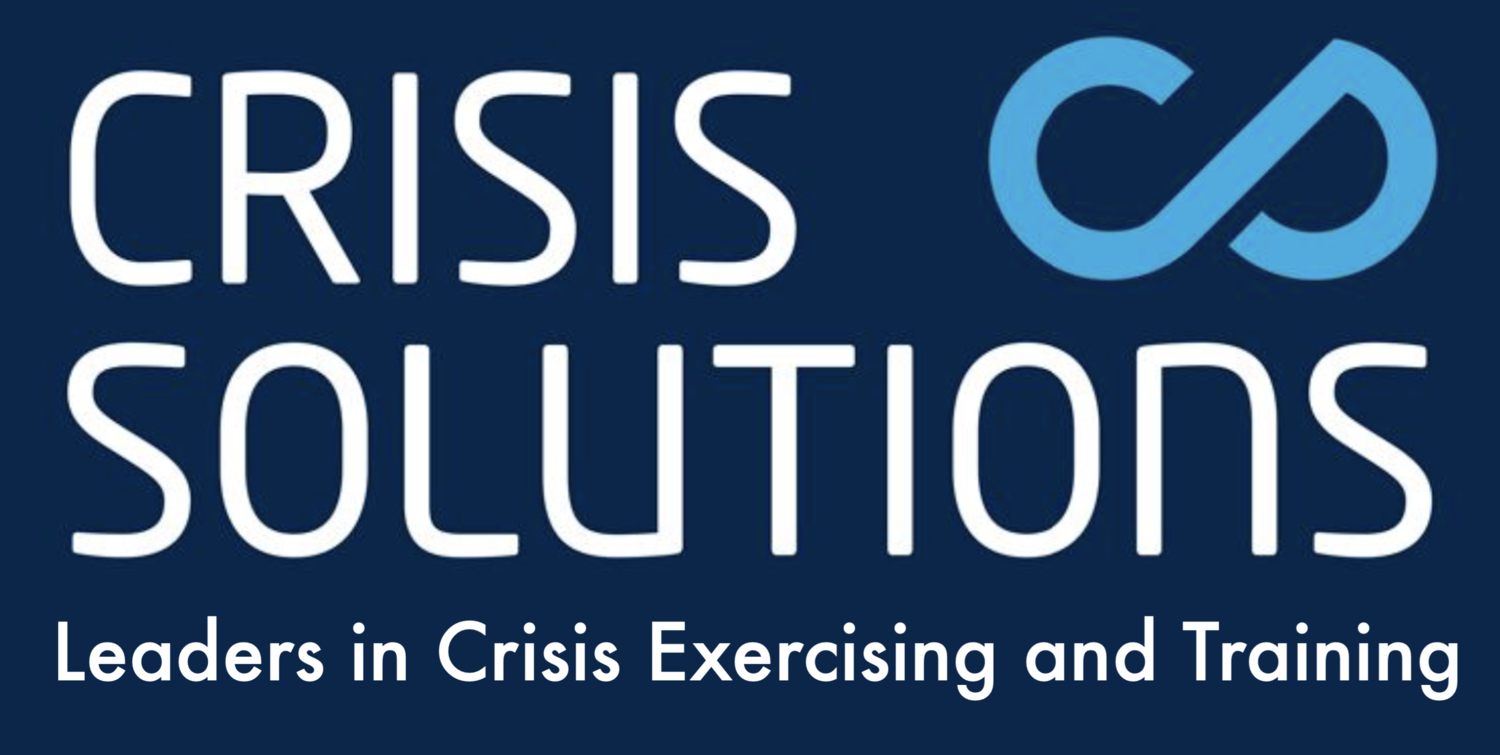Human factors in a crisis
From time to time I’m asked “What traits or qualities does a person need in a crisis?” The answer, on the face of it might seem simple. Calm under pressure, decisive, an ability to multi task perhaps. But let’s dig a little deeper by examining the question the other way around. How does a crisis affect an individual?
When we are asked to speak on this subject we focus on seven ‘Human Factors’ of crisis management, as we call them at Crisis Solutions. I’m going to cover all seven over the course of the next few blogs, but before I do I have to say they not one of us in the company are psychologists or have any professional qualifications in this area. What we do have though is the experience of seeing thousands of people in crisis teams subjected to the pressures of a crisis - simulated and real.
First, pressure and stress (there may be a technical distinction between the two when it comes to human behaviour, but for now let’s treat them as the same thing). We all react differently under pressure. Some people revel in it, others freeze and soon can’t cope. Between these two extremes there is a huge range of ways the mind and body reacts. The important thing in terms of crisis management is to recognise what stress is doing to you and to those around you. Can you recognise the effects stress is having? Is it improving performance? Or are you or your colleagues struggling to cope?
Some pressure can be good in a crisis, it causes a number of ‘fight or flight’ changes in our bodies that make us better prepared to deal with the threat - just like a caveman suddenly encountering a wild animal. We become more alert as heart rate increases. But this physical reaction is designed to prepare us for a short-term threat. If a threat situation (e.g. a crisis) goes on too long then those same physiological changes begin to drain energy. Anyone who has been in a crisis that’s gone on several hours will know the feeling. This makes it essential to deal with this effectively, for example by handing over to deputies before the dip in performance.
But let’s not just dismiss those who ‘can’t cope’ - we can use this diversity as a positive. We could consider putting two or three members of the crisis team who don’t perform well in a fast-paced pressurised environment into a sub-team, perhaps tasked with looking at the challenges the crisis presents in the days and weeks ahead. Removed from the immediate crisis situation their imagination and problem-solving skills might shine.
Hopefully we are now starting to build a more nuanced picture of how people cope differently in a crisis situation and how we can use those differences to benefit an organisations crisis response.

